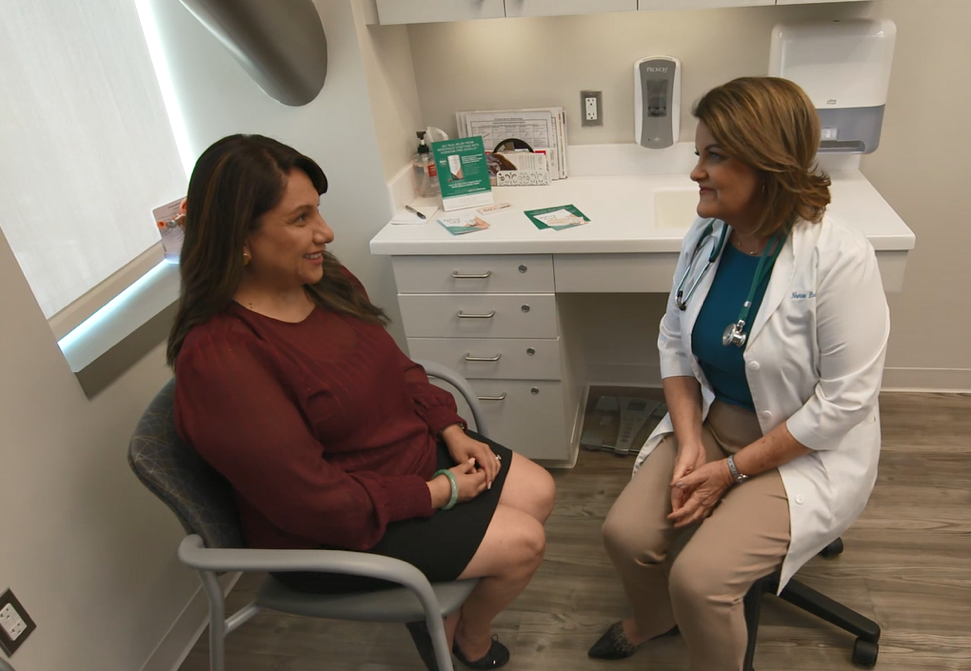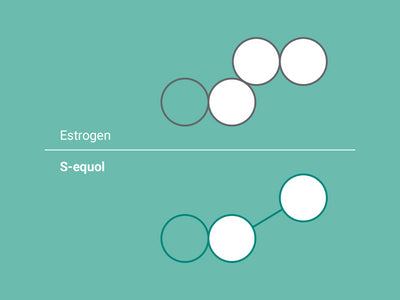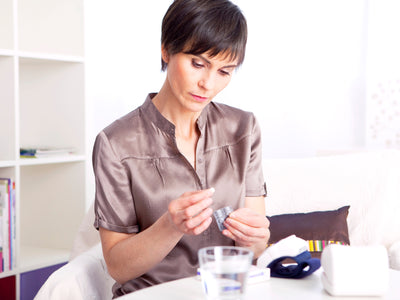
Real Talk About Menopause: Q&A with Nurse Barb Dehn, the Menopause Queen

Nurse Barb Dehn is a practicing Women’s Health Nurse Practitioner, award-winning author and nationally recognized health expert who provides smart, straight forward advice to women seeking answers about their health. Ms. Dehn is certified by the North American Menopause Society and is a Fellow of the American Association of Nurse Practitioners. Nurse Barb is passionate about helping women manage menopause and providing education that makes managing menopause easier.
We sat down with Nurse Barb who shared what she's seeing and hearing from her patients going through menopause, and what advice she would give women experiencing menopause symptoms.
Nurse Barb, thank you for speaking with us! Can you start off by sharing with our readers, from a clinical sense, what is menopause and at what age do most women go through this life change?
One common misconception is the timeline. Recently a patient asked, “How long is this going to last? I thought I’d be suffering for a few months, but this not going away!” It’s not unusual for Menopause symptoms to last anywhere from 1 – 15 or more years!
Another misconception is that menopause equals hot flashes and only hot flashes. But women are dealing with so many other symptoms like mood swings; poor sleep quality; and one big surprise is: vaginal irritation, soreness, and itching. Yes, ladies, this is a real thing and it’s uncomfortable.
All of these symptoms affect every facet of a woman’s life, including work – in a recent survey by EQUELLE, two-thirds of women indicated that menopause impacts their work life. Two-thirds!
Which leads me to this last one: there’s a misconception that there are only two options for menopause symptom relief: Hormone replacement therapy or doing nothing, which I like to refer to as suffering in silence. As I tell my patients, “No, no, uh, uh, there will be no suffering in silence! You deserve to feel better! I want women to know that they can talk to their healthcare providers (HCPs) about hormone-free and prescription free options, for symptom relief, like EQUELLE‡.

Nurse Barb, what are the most frequently asked questions you hear from your patients, from women going through menopause?
Women want to know three things:
- What are my options?
- How long will this last?
- What can my healthcare provider do to help me? Let’s take these one at a time.
When it comes to available options, about one third of women say they don’t know enough about the non-prescription options that are available for their menopausal symptoms. And yet, There ARE products out there with naturally-derived, plant-based ingredients that mimic estrogen and alleviate symptoms!
How long do menopause symptoms last? With some lasting for years, it’s important to talk with a health care provider about how to manage them over the long term. Women deserve to feel better and not suffer!
And finally, what can your Provider do? Unfortunately, there is a major communication gap between women and their health care providers. Half of women say they are not talking about menopause or the options for relief enough."
Based on what you see in your practice, Nurse Barb, can you share typical symptoms and frequently used solutions?
When it comes to menopausal symptoms, four most prevalent categories include:
- Hot flashes
- Poor sleep quality
- Mood swings
- And vaginal irritation, soreness and itching
With hot flashes, decreased estrogen can make the brain think the body is hot, when it’s not. Then it triggers a cooling off cascade by dilating blood vessels, but instead of cooling off, it leads to sweating and hot flashes. It’s all mixed up.
Many women also complain of disturbed sleep during the menopausal transition. My patients tell me that they can’t fall asleep, they’re waking up repeatedly throughout the night and then, can’t get back to sleep. In menopause, women are BEYOND fatigued, which can have a huge impact on work.
Menopause can often feel like a hormonal and emotional roller coaster, which can lead to irritability and mood swings.
When it comes to solutions, all of these symptoms can be alleviated by hormonal OR hormone-free, non-prescription options. I encourage women to do their own research on the available options, including new ones and then discuss them with their own health care providers.

How have you seen options for menopause symptom relief change for women over the years?
In the last few years, we’ve seen many more options for women seeking menopause symptom relief! But, hormone replacement therapies and prescription options aren’t the only products on the table. And that’s important because close to 70% of women prefer hormone-free options to address symptoms of menopause.
Health care providers are open to this too: a recent survey found that over 80% of HCPs are at least somewhat likely to recommend a non-prescription supplement.
What would you look for in hormone-free options? And why are hormone-free options important?
As a health care provider, it’s important to make sure any product has clinical data that speaks to its efficacy, that is how well it works, and its safety.
And women are especially interested in hormone-free options as we become more aware of our health and what we put into our bodies. Many of my patients are understandably scared of the potential for side effects that may be associated with hormone therapy.
One hormone free option is EQUELLE, It’s a non-prescription supplement, and hormone free‡.
What I like about EQUELLE is the decades of clinical research behind it supporting both efficacy and safety. Also, it’s important that I hear from my patients who are using EQUELLE. They tell me that they are finding relief of their symptoms.†
And, it’s important to also think about a holistic approach – there’s not going to be one magic solution to this multi-faceted experience. Talk to your doctor and be sure to incorporate healthy lifestyle habits like exercise and a nourishing diet.

What advice would you give a woman who’s experiencing menopausal symptoms?
Take charge of your own health and how you feel – you do not have to suffer in silence. You deserve to feel better.
Do talk to your health care providers. Be proactive and bring up menopause at the beginning of an appointment, not the end. You might also consider setting up an appointment specific to your menopausal concerns.
And this is important, do search for information on hormone-free options for menopause. You can look into products that have become available in the last few years, like EQUELLE, and do ask your Providers about specific products.
Thank you for your time, Nurse Barb! (Nurse Barb is an EQUELLE partner.)


